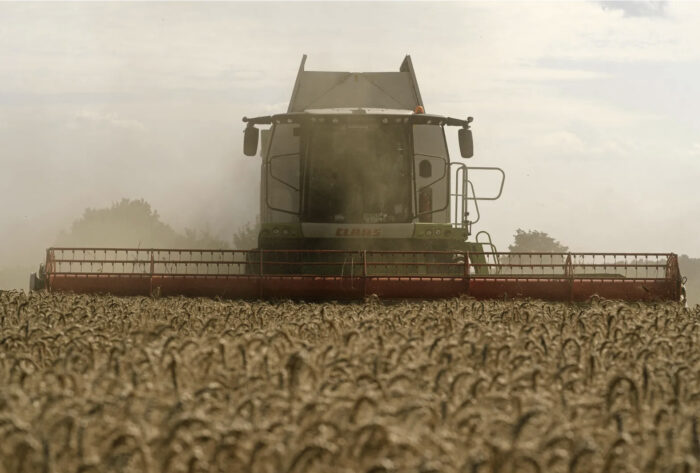
Mike Pence on Leadership and the Future of the Republican Party
Former US Vice President Mike Pence looks back on the events of January 6 2021, his final days in office with President Trump and his…
Thought Leader: Mike Pence

In July 17, Russia suspended the Black Sea Grain Initiative, a deal brokered last year by the United Nations and Turkey that has moved some 33 million metric tons of grain and oilseeds from Ukraine to foreign ports. The deal, which Russia also briefly suspended in October 2022, had provided big benefits for poorer countries struggling with high food prices already exacerbated by COVID, higher energy prices, and then by Russia’s invasion of Ukraine. Now, Moscow claims the right to treat any foreign ship heading for a Ukrainian port as a legitimate target of war, making it all but impossible for outsiders to protect grain ships and pushing up shipping and insurance costs. Russian missile strikes on Ukrainian port infrastructure and grain storage in recent days have made matters worse.
But there are several reasons why Russia’s attack on Ukraine’s food exports probably won’t trigger an emergency for global food prices and the political turmoil that often comes with it. First, Ukraine is already sending larger amounts of food over land and by river. Data from the United Nations and USDA show that about 47% of the country’s wheat exports, 40% of its corn shipments, and 67% of exported sunflower oil now reach global markets via Europe through those routes.
Second, following a record harvest in recent months, Russia now has more wheat and grain to export. Its own Black Sea exports will continue, easing some of the upward pressure on global food prices. Despite Ukrainian threats to attack Russian shipping, its high spending on its own shipping and insurance costs will limit what Ukraine can afford to attempt. The USDA has also forecast big increases in corn and wheat production in coming months in Argentina, China, the EU, Turkey, and the US, which will help offset reduced exports from Ukraine.
There are caveats here. Any fall in the global supply of agriculture products could persuade some governments to restrict their own food exports to protect food security at home. That could sharply raise food prices for everybody else. We’re already seeing a surge in tensions between Ukraine and some of its nearest European neighbors. In April and May, fears that a surge in Ukraine’s over land food exports will hurt their own farmers led Poland, Bulgaria, Romania, Hungary, and Slovakia to impose temporary import restrictions, and these countries now want the European Commission to let them extend those limits beyond their scheduled expiration in September to at least the end of the year. The EU is now trying to help Ukrainian grain exports pass through Europe to be shipped to non-EU buyers.
Finally, higher food prices can boost the risk of protests and unrest in countries heavily dependent on food supplies from the Black Sea region. Egypt hopes to buy more Ukrainian grain shipped overland across Europe. A foreign ministry official in Kenya has called Russia’s decision to suspend the grain deal a “stab on the back.” [sic] Moscow is aware it now has real PR problems in poorer countries.
For now, food prices are rising but remain at half the high point reached just after Russia’s invasion 17 months ago. And though more uncertainty in Ukraine will create more risks for global food prices, all the relevant players are now better able to manage this fallout.
Mike Pence on Leadership and the Future of the Republican Party
Former US Vice President Mike Pence looks back on the events of January 6 2021, his final days in office with President Trump and his…
Thought Leader: Mike Pence
Marc Short on U.S. Investment in Critical Minerals
Why do critical minerals matter now? Marc Short explains how U.S. investment in critical minerals fits into a broader strategy around economic security, manufacturing, and…
Thought Leader: Marc Short
Marc Short on AI Policy and the Government’s Role in Chip Technology Investment
On CNBC, Marc Short breaks down the role of AI policy and how government investment is shaping the future of chip technology. A former Chief…
Thought Leader: Marc Short

